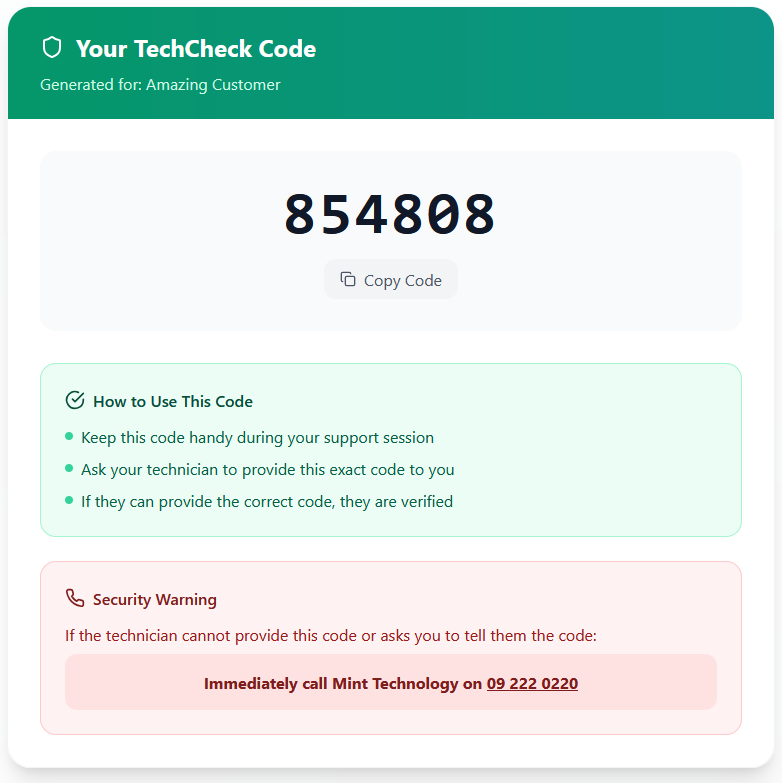Impersonation scams, where scammers pretend to be your IT support company are becoming more common. Here's what we're doing to stop them.

You get a phone call. They know your name, your role, even the name of your IT company. It all sounds legitimate - so you trust them.
These days, scams aren’t just about dodgy emails pretending to be from Microsoft. They're smarter. More personal. And far harder to spot.
Since 2020, impersonation scams have spiked - especially during work from home peaks. These scammers don’t demand credit card details or threaten you with popups. They’re friendly, polite, and often happy to call you back later. They even spoof the number of your IT provider.
All they ask? Remote access to your computer to “run an update” or “fix something minor.”
Once they’re in, they can access sensitive company data in seconds.
We’ve dealt with multiple cases where scammers have tricked users into installing remote tools or clicking malicious links. The result? Full access to machines, networks, and files - often for hours before anyone notices.
While it’s not always possible to stop someone from identifying your IT provider, we’ve built a tool to stop them in their tracks.
If a Mint technician ever calls and you’re unsure it’s really us, just visit TechCheck on your phone or computer and enter your name.

You’ll get a one time, 6-digit code, generated specifically for you and this particular occasion. Ask the technician on the phone to tell you that code.

The technician who is on the phone with you should then be able to tell you what your TechCheck code is. If they can’t - hang up. It’s not us. Call us directly.
From refusing to publish client details, to building tools like TechCheck, Mint takes your security seriously. If you're looking for an IT provider who puts security of your tech first, we'd love to chat.